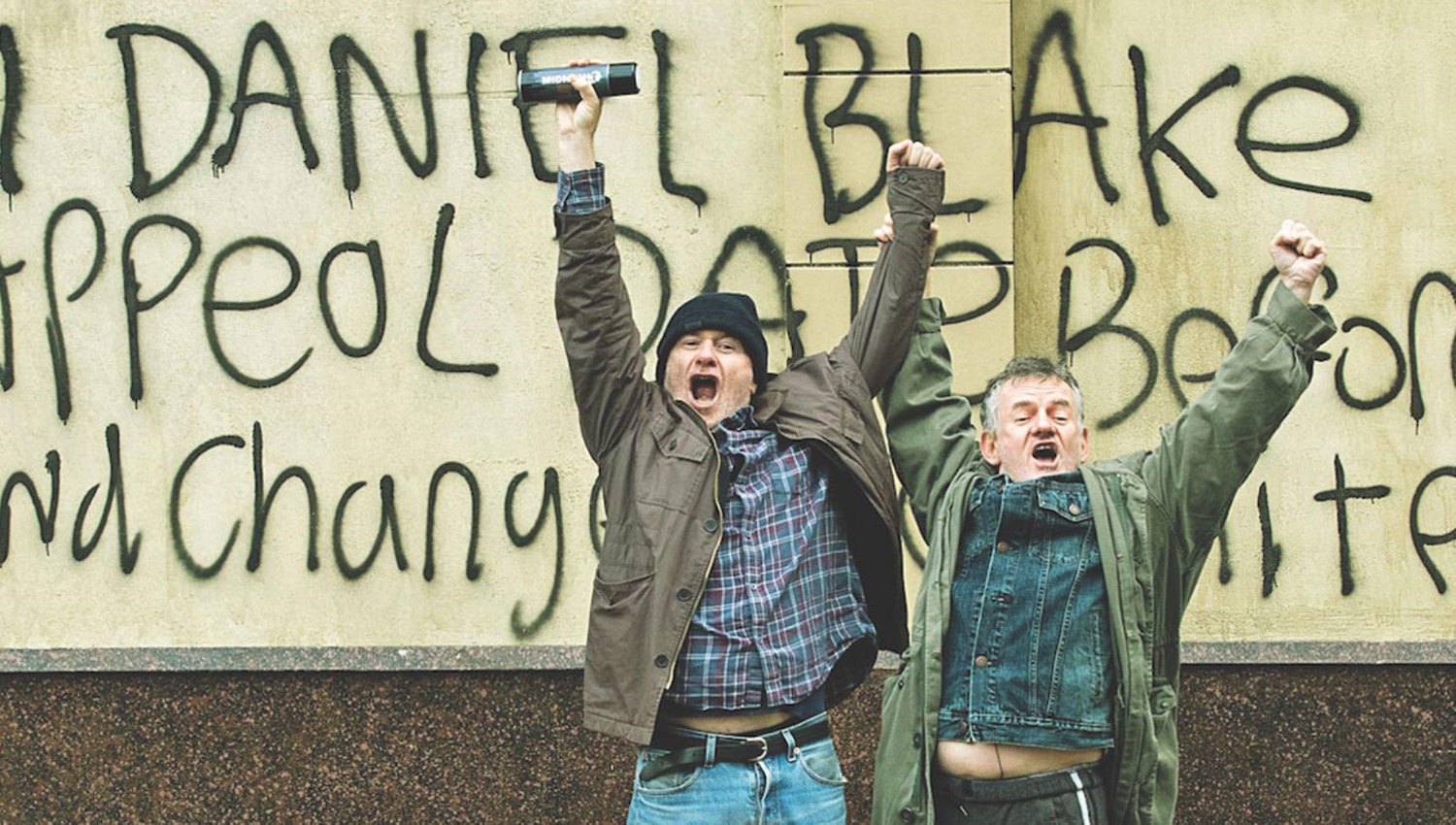
I, Daniel Blake
Dustin Chase
I respect the Cannes film festival and the focus it brings to innovative, international cinema. I, Daniel Blake is the 2016 Palm d’Or winner and director Ken Loach’s second time taking the top prize. They couldn’t have chosen a more simple, naturalistic film, it almost reminds me of how someone dropped their reading glasses in an art museum, and passersby’s mistook it for an art installation. With no musical score, no artistic or technical achievement to speak of, this film simply follows one man and a young family facing poverty and isolation from “the system”.
Recovering from a scaffolding fall due to heart problems, Daniel Blake (Johns) is a recent widower who missed out on the technology boom due to his blue-collar skill set. Now in need of financial assistance he is unable to use a computer to fill out the necessary forms. Digital by default, he is told from the unemployment office, the job seeker officer and others. “We’ll I’m pencil by default,” he attempts to make light of his situation. There he meets Katie (Squires), a single mother with two young children, each by different fathers. She purchases their groceries at a food bank, and struggles to have enough food for three mouths. Daniel helps around her house, doing odd jobs and with the children while she looks for work. They find minor comfort in their communal struggle.
It’s below basic, and lauding something of this nature is a dangerous slap in the face to artisans who work tirelessly on creating real cinematic achievements.
This is a story about modern struggle, while set in a small town in the UK, it could represent anywhere. There are small moments of comedy in the script, like the opening title sequence, a black screen, with Johns speaking to a nurse. The biggest turn off is how procedural this film plays out, it’s not cinematic in the slightest and its general appeal will be very low. I, Daniel Blake is strongest when it explores the intersection of responsibility and the lack of compassion within the system from the gatekeepers. Often when a scene ends, it’s fade to black, and each time I half expected Diane Sawyer to begin narrating statistics. Loach intentionally makes this feel like a dramatized documentary or news story to authentic its purpose.
The more I watched, the more frustrated I became with the character’s inability to help themselves, trying to understand their stubbornness. Are the people representing the companies and agencies really the bad guys? The many antidotes the film uses are effective, believable and in many situations avoidable. Pride is also one of the many emotional elements this script tackles, and while both characters suffer a sort of inevitable tragedy, I, Daniel Blake simply presents the facts, rather than creating any sort of rousing support on the issue at hand. It’s below basic, and lauding something of this nature is a dangerous slap in the face to artisans who work tirelessly on creating real cinematic achievements.
Final Thought
A procedural look at individuals segregated by technology and systematic requirements that’s anything but cinematic.
